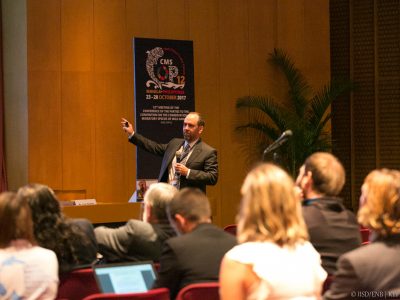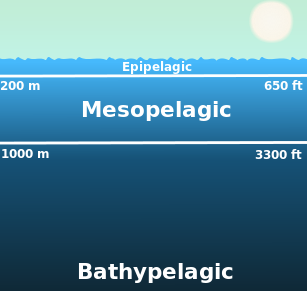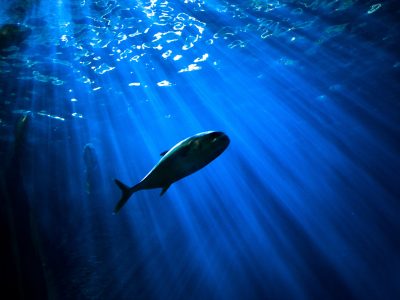Global Fishing Watch Research Workshop
Over the past two years, the Global Fishing Research Program has made great progress, including the publication of almost a dozen papers and the initiation of many more research projects….
Over the past two years, the Global Fishing Research Program has made great progress, including the publication of almost a dozen papers and the initiation of many more research projects….

Not all fish swim the same way. Some fish will live their whole lives swimming around a tiny home range, while others migrate 5000 km across the Atlantic ocean in just a few months. Even among those that move over large areas, there is a lot of variability.
“Some fish have specific migratory routes, like bluefin tuna — they are most definitely going from point a to point b. They have life stages on either side, breeding in one place and feeding in the other,” says Daniel Dunn, Nereus Program Principal Investigator at Duke University. “Other fish like yellowfin tuna don’t have specific routes — they move and breed across the whole tropical ocean.”
From October 23 to 28, Nereus Program Principal Investigator Daniel Dunn (Duke University) will be attending the 12th Conference of the Parties (COP) to the Convention on the Conservation of…
From October 23 to 28, Nereus Program Principal Investigator Daniel Dunn (Duke University) will be attending the 12th Conference of the Parties (COP) to the Convention on the Conservation of…
Between September 4 and 8, 2017, the 4th International Marine Protected Areas Congress, IMPAC 4, was hosted in Chile. The purpose of IMPAC 4 was to integrate and connect relevant actors across the oceans for MPA development.
Nereus Senior Research Fellow Daniel Dunn (Duke) will be attending the 4th International Marine Protected Areas Congress (IMPAC4) on September 4-8, 2017, in La Serena-Coquimbo, Chile. The Congress will provide…

The mesopelagic zone of the ocean, which includes the 200 to 1000 m below the ocean surface, is poorly understood. Our limited scope of understanding for these areas may become increasingly problematic, as they may be vulnerable to global issues such as climate warming, deoxygenation, acidification, commercial fishing, and seabed mining.
From August 9 to 11, 2017, Daniel Dunn will be attending the CSIRO Workshop on Biogeography. The Commonwealth Scientific and Industrial Research Organisation (CSIRO) promotes the use of science to…

The high seas — also called international waters — comprise 64% of the world’s oceans and 45% of the earth’s surface. They are shared by the world but governed by no one country. That means that the incredible biodiversity of the high seas, from seaweeds to fish to sharks, is not currently protected.
Nereus Fellow Daniel Dunn will be attending the Fourth Session of the Preparatory Committee on marine biological diversity beyond national jurisdiction (BBNJ) July 10-21 in New York. The purpose of…